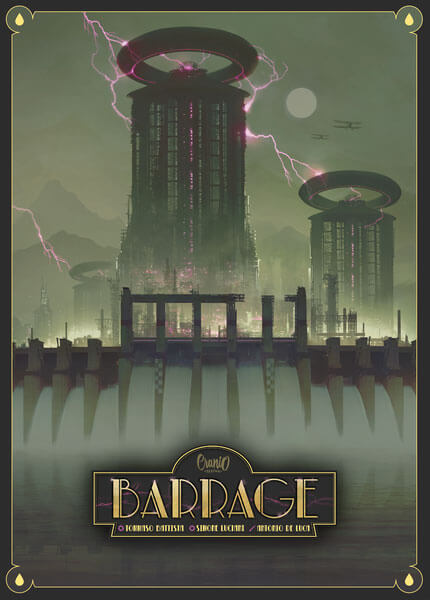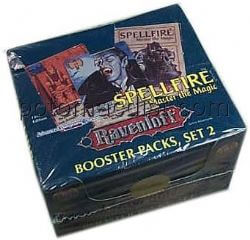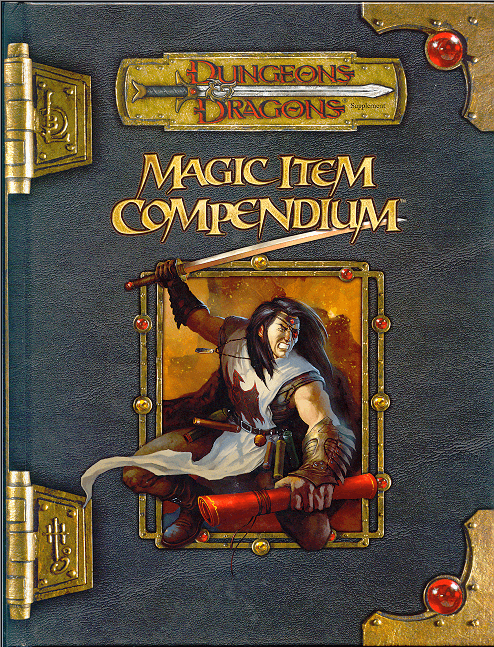
Barrage
In a future where the scarcity of energy resources leads to an insane race for water dominance, Barrage puts players in the role of hydraulic engineering magnates in search of power. Set in an alpine region covered in crystal-clear rivers, each competes to build imposing dams that not only store water, but also transform this precious source into powerful electricity. Players must develop their operations, managing an innovative construction wheel that determines the speed with which their actions and resources return. Careful planning is essential; the more robust your structure, the faster you can act and react to the needs of the game. The flow of water is both a common good and a target to be contested. Upstream dams offer protection, but they also cost a lot; as players try to divert and exploit the water, strategic positioning becomes key. As they progress through five rounds, players face the challenge of meeting energy demands and fulfilling specific contracts, while allocating engineers and optimizing their machines. Competition is fierce and each decision can drastically change the balance of the game. Barrage is an engaging mix of strategy, collaboration and rivalry, where only the most cunning and innovative will emerge victorious. Complexity: 4.08 / 5 (BGG 04/05/2023)Artists: Antonio De Luca; Mauro Alocci
Designers: Tommaso Battista; Simone Luciani
Date: 2019
Note: 8.6
Mechanics: Allocation of workers, End of game bonus, Building Networks and Routes, Contracts, Players with Different Skills, Shift Order: Based on Statistics, Variable preparation, Property, Income, Solo
Topics: Economy / Production, Environment
Table of Contents
- How to Play
- Tips for playing
- Game mechanics
- Game components
- Additional Information
OBJECTIVE OF THE GAME
Tips for playing
Here are some tips for doing better in the game Barrage:
- Prioritize development near the sluice gates, as controlling the water is crucial to getting points.
- Watch your opponents' actions carefully and adjust your strategy to block their chances of building.
- Build infrastructures that maximize the efficiency of your plants, guaranteeing the best possible production with the available resources.
- Don't overlook the importance of contracts, as they offer valuable bonuses throughout the game.
- Manage your engineers well, planning carefully so as not to run out of action at critical moments.
- Upgrade your energy capacities to meet more challenging and profitable contracts.
- Focus on controlling multiple river basins to increase your influence and tactical options against your opponents.
Video about the game
GAME mechanics
- Allocation of workers: Players use workers to carry out actions on the central board, such as building infrastructure, obtaining contracts and maintaining operations. The efficient allocation of these workers is crucial to maximizing energy production and the expansion of your network.
- Building Networks and Routes: The construction of dams, conduits and power plants is fundamental to creating an efficient energy production and distribution network. This mechanics requires strategic planning to efficiently connect these structures and optimize the flow of water, which is essential for generating energy.
- Players with Different Skills: Each player controls a company with unique skills that offer specific advantages. These skills influence game strategies, such as building efficiency or energy generation bonuses, and must be used strategically to gain an advantage over your opponents.
- End of game bonus: Players accumulate points through their actions during the game, and certain objectives can award additional victory points at the end of the match. These bonuses influence strategic decisions throughout the game, encouraging diversification or specialization in certain areas.
- Contracts: By obtaining contracts, players commit to producing and supplying a certain amount of energy which, once fulfilled, grant rewards such as additional resources or victory points. Fulfilling contracts is a way of gaining an economic and strategic advantage in the game.
- Income: Generating energy from the water that flows through dams provides income in the form of resources and points. The efficiency with which energy is produced and the frequency of operations directly impact the capacity for investment and expansion of the infrastructure.
- Property: Structures built on the board have property, blocking other players' access to certain resources or water routes. Strategically controlling these properties can strongly influence the progress of your opponents' game.
- Solo: The game offers a solo mode where the player faces a series of objectives and challenges simulated by an automatic opponent, using the same mechanics as the standard game. This mode allows you to practice strategies without the need for multiple players.
- Variable preparation: At the start of each game, the board is set up differently with the random distribution of resources and contracts, ensuring that each game offers a new set of challenges and strategic demands.
- Shift Order: Based on Statistics: The order of turns is determined by performance statistics, such as the amount of energy generated. Players who generate less energy can act first in the next round, rebalancing the strategic opportunities between all participants.
Game components
See all the items in the game below Barrage:
- 1 Double-sided map
- 1 Management tray
- 1 Power rail
- 1 Patent tray
- 8 spring cards
- 10 Initial preparation sheets
- 6 Bonus sheets
- 6 Goal sheets
- 45 Private contract forms
- 6 National contract sheets
- 15 advanced technology chips
- 3 Neutral base pieces
- 3 Neutral lifting parts
- 30 water drop tokens
- 58 Hydroelectric credit sheets
- 34 Excavator parts
- 26 Concrete mixer parts
- 4 Company trays
- 4 construction wheels
- 4 Initial contract sheets
- 7 CEO sheets
- 20 Basic technology sheets
- 1 Special technology sheet
- 48 Engineers' parts
- 20 Base pieces
- 20 Lifting parts
- 20 pieces of conduit
- 16 Plant parts
- 4 Shift markers
- 4 Victory point markers
- 4 Energy markers
- 4 Auxiliary sheets
- 20 Self-employed forms
Additional Information
- Ludopedia link: https://ludopedia.com.br/jogo/barrage
- Link Tabletopia:
- Amazon Brazil link: Comprar Barrage
- Amazon USA link: Comprar Barrage


